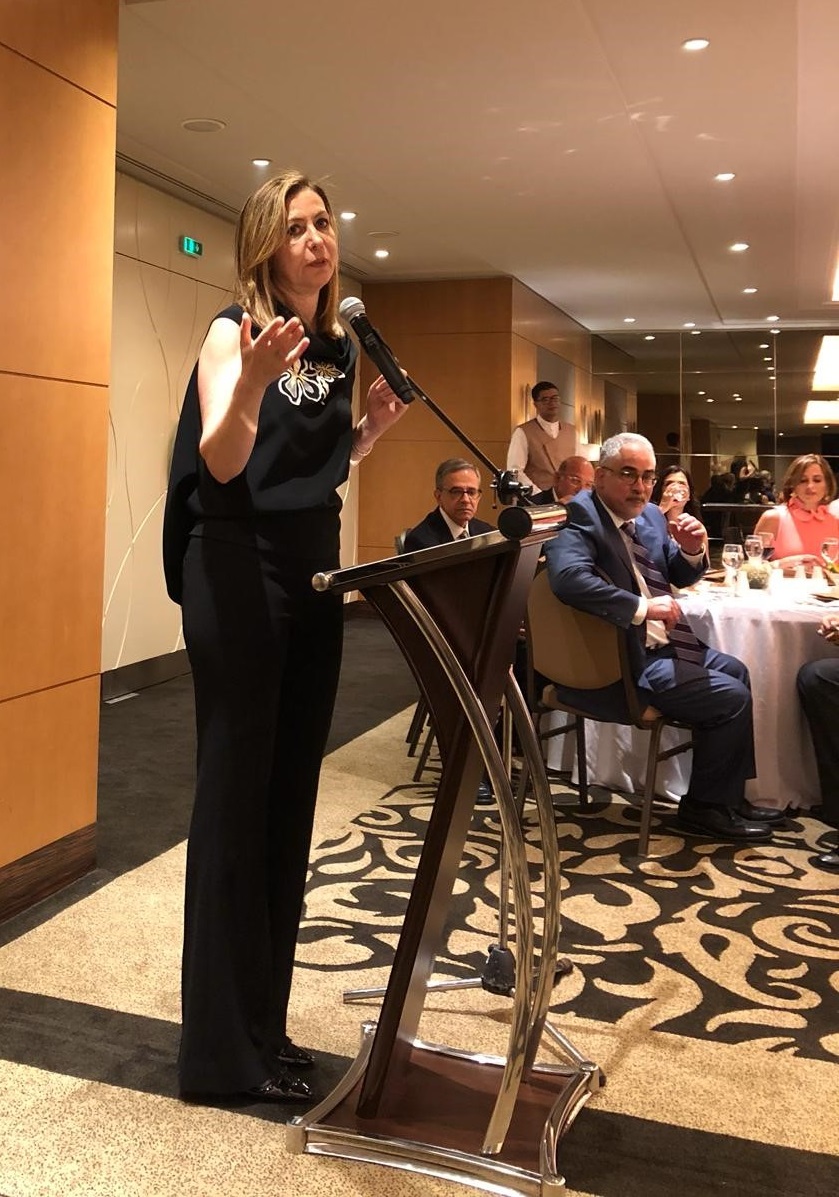Wayne State University Professor of Pathology Rouba Ali-Fehmi, M.D., was a key leader at the National Arab American Medical Association Summer International Conference, held June 30-July 5 at the American University of Beirut, or AUB, in Lebanon.

Dr. Ali-Fehmi is president of the organization that hosted “Sound Mind, Sound Body: Advances in Medicine and Public Health,” a meeting attended by 64 physicians and health professionals from the United States, Canada and Lebanon. Wayne State’s School of Medicine was a major sponsor for the conference and its humanitarian endeavors. Dr. Ali-Fehmi, who will complete her term in January, previously oversaw conferences in Morocco and Cairo.
“The scientific program was very rich, with outstanding speakers from the States and AUB. There were a lot of opportunities for collaboration. I learned a lot about public and mental health, as this was the main focus of the conference,” Dr. Ali-Fehmi said.
A lineup of 30 speakers from the U.S. and the university covered topics related to the health of the mind and the body. Lectures covered physician burnout, refugee mental and physical health, women’s health, and the latest studies on tobacco and hookah dangers.
Guests also visited three non-governmental service organizations to learn about their work with Syrian refugees living in camps previously built for Palestinian refugees in the 1950s.
“The humanitarian visit to the Palestinian settlement was quite enlightening to better understand the poor public health conditions that are extant for the families in these segregated neighborhoods,” said Anne Victoria Neale, Ph.D., a professor of Family Medicine and Public Health Sciences who attended the conference.
WSU faculty observed similarities between Beirut, once known as the “Paris of the Middle East,” and Detroit, formerly nicknamed the “Paris of the Midwest,” Dr. Ali-Fehmi said. Following their peak of prosperity, both cities have suffered severe population loss and an eroded tax base during recent decades, but are actively rebuilding their core areas now, she added.

Conference participants were moved by the work of the humanitarian agency Atfal Assumod, and pledged $10,000 in donations. Volunteer physicians also helped at Haifa Hospital, run by ANERA, in Burj Brajneh, Lebanon.
In addition to her presidential duties, Dr. Ali-Fehmi, M.D., presented a lecture on “NAAMA NextGen,” a chapter within NAAMA that the association founded to enhance the careers of young undergraduate and graduate students in their 20s, empowering them to play a key role in health care advocacy and community service. She created the program in 2018 with help from colleagues and college students at Wayne State and other Michigan medical schools.
NAAMA is a Troy, Mich.-based organization founded in 1975 whose mission is to promote the professional development and cultural identity of health professionals with roots or affinity in the Arab world.
“My presentation highlighted the impact of NAAMA on NAAMA NextGen members, including research opportunities, mentorship and multiple leadership workshops, as well as a research grant from the foundation studying the prevalence of obesity in Arab American populations,” she said.
In addition, Dr. Neale presented “Arab/Chaldean Americans’ Perspectives on Participating in Research: A MetroNet Study,” and Linda Jaber, PharmD, professor of Pharmacy Practice, presented “Team-based Approach to Diabetes Research in Arab Americans.”